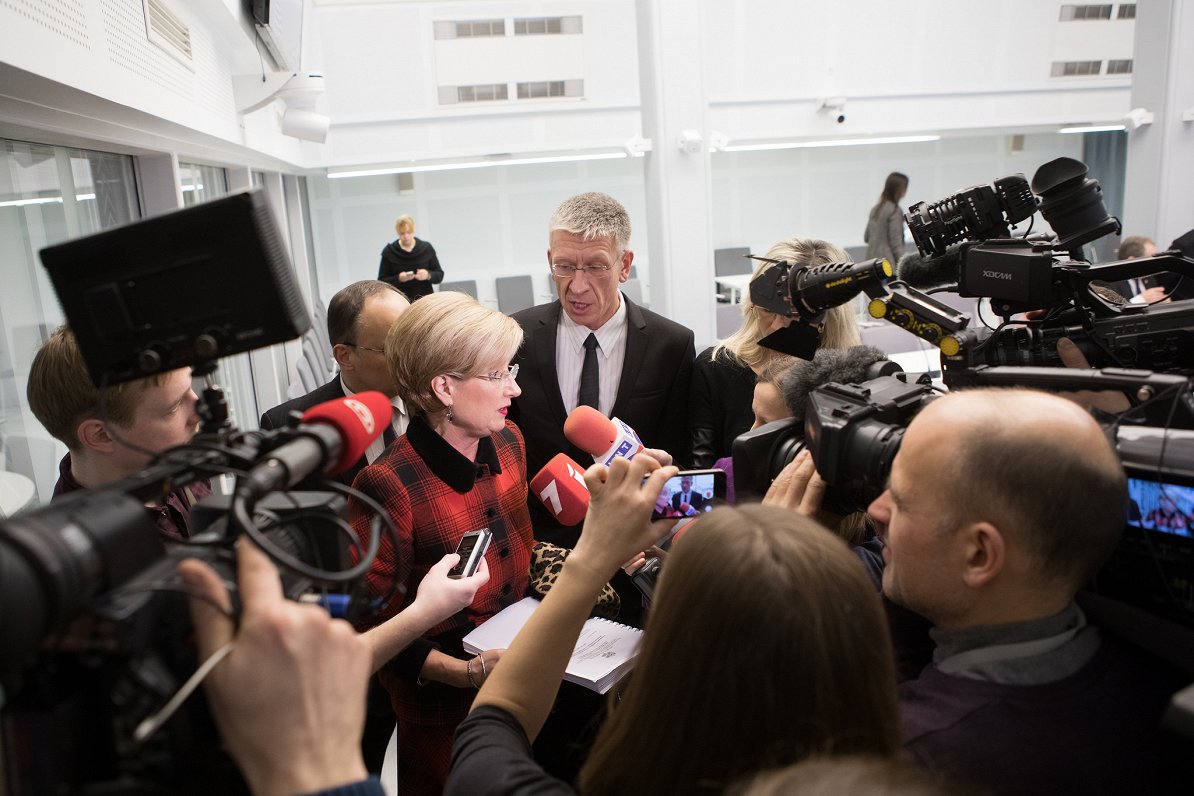Speaking on LNT commercial television before the adoption of the final report, commission chairwoman Inguna Sudraba said the report would not contain any names because the criminal investigation of the oligarch affair had ended without pressing changes against anyone and the parliamentary committee did not have a mandate to accuse anyone where the criminal investigators had failed to do so.
She said there had been no determination to get any results and the whole investigation had been just for a show but the public should receive answers about what had been done wrong during the investigation process.
The commission finished its work in the same manner it had conducted most of the proceedings - low level chaos.
Only four of the commission's six members supported its findings and Saeima saw a last-minute effort to depose Sudraba as head of the commission defeated.
Angry exchanges between Sudraba and another commission member, Andrejs Judinš, echoed through the corridors of power.
Initially the ad hoc committee was expected to meet after the parliament plenary meeting on Thursday but on Wednesday evening Sudraba notified the committee members that the meeting had been rescheduled and will take place shortly before the plenary meeting.
This prompted speculation that she wanted to get the final report adopted before the parliament has had a chance to remove her as the ad hoc committee chair due to the liquidation of her For Latvia from the Heart parliamentary faction.
In July 2017 the Latvian parliament set up the ad hoc committee to probe the so-called oligarch affair to look for signs of state capture and to examine the quality of pre-trial investigation. Sudraba was elected as the committee chairwoman despite the fact that she had been mentioned in the oligarch conversations that the committee was supposed to probe.
The oligarch conversations are a series of transcripts of high-ranking politicians and businessmen's conversations at Ridzene hotel in Riga which have been published by the Ir news magazine. Those records were one of the main pieces of evidence in a 2011 criminal case on bribery, money laundering, abuse of office and other crimes, implicating a number of high-ranking politicians and public figures, including Andris Skele, Aivars Lembergs, Ainars Slesers and others.
The Corruption Prevention Bureau investigated the case for several years, but eventually concluded that the secretly-recorded conversations did not constitute compelling evidence, therefore the criminal case was closed. The original recordings have never been released into the public domain and those included in the transcripts dispute their veracity.
The general result of six months of work by the commission and 47 interviews conducted: no-one is much the wiser.
The report states that the commission of inquiry supports proposals to organize a discussion on the incorporation of the concept of "state capture" into the regulatory framework. The commission also believes that a law on lobbying should be adopted, which would help to identify the distinction between authorized, legitimate and unauthorized, unlawful methods of influencing politics.
The commission's deputies proposed in the report to consider the need for amendments to several laws, including to make criminally more effective the provision of deliberately false testimony and to improve operational processes.
The commission also concluded that it is necessary to supplement the regulation of parliamentary investigation commissions, so that other members of the Saeima could participate in their meetings.






























